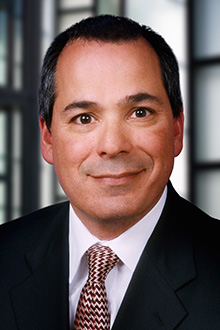Intellectual Property and Appellate Team Secure Appellate Win in High-Stakes Trademark Infringement Case
Los Angeles, Calif. (April 21, 2020) - Los Angeles Intellectual Property Chair Daniel C. DeCarlo, along with San Diego Appellate Practice Partners Jeffry A. Miller, Lann G. McIntyre, and Brittany Bartold Sutton, recently secured a significant appellate victory for the firm’s client, a leather furniture manufacturer, when the U.S. Court of Appeals for the Ninth Circuit determined that the plaintiff was not entitled to the $4.2 million in profits it had sought for our client’s adoption of the plaintiff’s trademark. This was the second trip to the Ninth Circuit for the case and marks the likely end of a case that began in 2013.
In the underlying action, the plaintiff sued our client, Omnia Italian Design, Inc., for trademark infringement and sought to compel the disgorgement of our client’s profits which the plaintiff claimed were $4.2 million. At trial, Mr. DeCarlo successfully established that although Omnia chose to use the plaintiff’s mark, Omnia did not gain any profits that were attributable to the infringement. As such, the U.S. District Court for the District of Arizona denied the plaintiff an award of our client’s profits. Mr. DeCarlo had also successfully blocked plaintiff’s efforts to seek any damages related to the plaintiff’s claimed losses flowing from the trademark infringement. The plaintiff then appealed.
On appeal, the Ninth Circuit determined that the record evidence, including expert testimony and a consumer survey, supported the lower court’s finding that Omnia’s sales, even though such sales included the plaintiff’s trademarks on the goods, did not result in any profits from those infringing sales that could be said to have been attributable to the use by Omnia of the plaintiff’s trademark. Inclusive in the Court’s opinion was a rejection of the plaintiff’s challenge to a survey commissioned by the firm that was designed to test consumer perception of the plaintiff’s trademark. That survey revealed a lack of any meaningful value to the trademark, which proved key in the Court’s finding of no attribution and thus no profit award. The Court reasoned that because Omnia did not profit from the infringement, disgorgement would have amounted to an “inequitable windfall” under the Lanham Act. Accordingly, the Ninth Circuit concluded that the lower court did not abuse its discretion in declining to award profits to the plaintiff. Since, in an earlier phase of the case, Mr. DeCarlo had successfully defeated the plaintiff’s claim to any damage recovery, the plaintiff was left with no monetary recovery.
Mr. DeCarlo said, when reflecting on the marathon case, “This case has probably been the longest case I have ever been involved in during my career. But after seven years of litigation, our client is thrilled to be able to close the books on this case and move forward with his business. I’m glad we could be a part of bringing the case to a successful conclusion for our client.”
You can read the Ninth Circuit’s opinion here.



